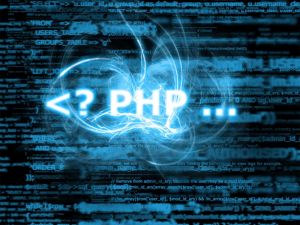Home >Backend Development >PHP Tutorial >Detailed introduction to PHP features
Detailed introduction to PHP features
- 巴扎黑Original
- 2017-06-15 13:57:492764browse
We have briefly mentioned in the previous section: recycling may have a slight performance impact, but this is only when comparing PHP 5.2 with PHP 5.3. Although in PHP 5.2, logging may be slower than not logging at all, other changes to the PHP run-time in PHP 5.3 reduce this performance penalty. There are two main areas here that have an impact on performance. The first is the saving of memory space, and the other is the increase in execution time (run-time delay) when the garbage collection mechanism performs memory cleaning. We will look at both areas. Memory space savings First of all, the whole reason for implementing a garbage collection mechanism is to save memory footprint by cleaning up circularly referenced variables once the prerequisites are met. In PHP execution, garbage collection is performed once the root buffer is full or the gc_collect_cycles() function is called. In the figure below, the memory usage of the following scripts in PHP 5.2 and PHP 5.3 environments is shown, excluding the basic memory occupied by PHP itself when the script is started. Exa
1. PHP Features Garbage Collection Mechanism 3—Performance Considerations

Introduction: We have briefly mentioned in the previous section: recycling may have a slight performance impact, but this is only when comparing PHP 5.2 with PHP 5.3. Although in PHP 5.2, logging may be slower than not logging at all, other changes to the PHP run-time in PHP 5.3 reduce this performance penalty.
2. PHP Features Garbage Collection Mechanism 2 - Recycling Cycle

##Introduction: Traditionally, the reference counting memory mechanism used in PHP cannot handle circular reference memory leaks. However, PHP 5.3.0 uses the synchronization algorithm in the article » Concurrent Cycle Collection in Reference Counted Systems to deal with this memory leak problem.
3. PHP Features Garbage Collection Mechanism 1—Basic Knowledge of Reference Counting

Introduction: Each PHP variable exists in a variable container called "zval". A zval variable container contains, in addition to the type and value of the variable, two bytes of additional information.
4. PHP Features Session Mechanism 2——Session and its use

5.
PHP Features Session Mechanism 1—Use of Cookies
 ##Introduction: PHP transparently supports HTTP cookies. A cookie is a mechanism that stores data on a remote browser to track and identify users. Cookies can be set using the setcookie() or setrawcookie() functions.
##Introduction: PHP transparently supports HTTP cookies. A cookie is a mechanism that stores data on a remote browser to track and identify users. Cookies can be set using the setcookie() or setrawcookie() functions.
6.
php for HTTP authentication # #Introduction: PHP Features Using PHP for HTTP Authentication
# #Introduction: PHP Features Using PHP for HTTP Authentication
7. php—Use of Cookies
 Introduction: Session mechanism of PHP features—Use of Cookies
Introduction: Session mechanism of PHP features—Use of Cookies

##Introduction: PHP features session mechanism—Session and its use
9. php uses the POST method to upload single files and multiple files

Introduction: PHP Features File Upload—Use the POST method to upload single files and multiple files
10. php file upload error message description

【Related Q&A recommendations】:
The above is the detailed content of Detailed introduction to PHP features. For more information, please follow other related articles on the PHP Chinese website!

